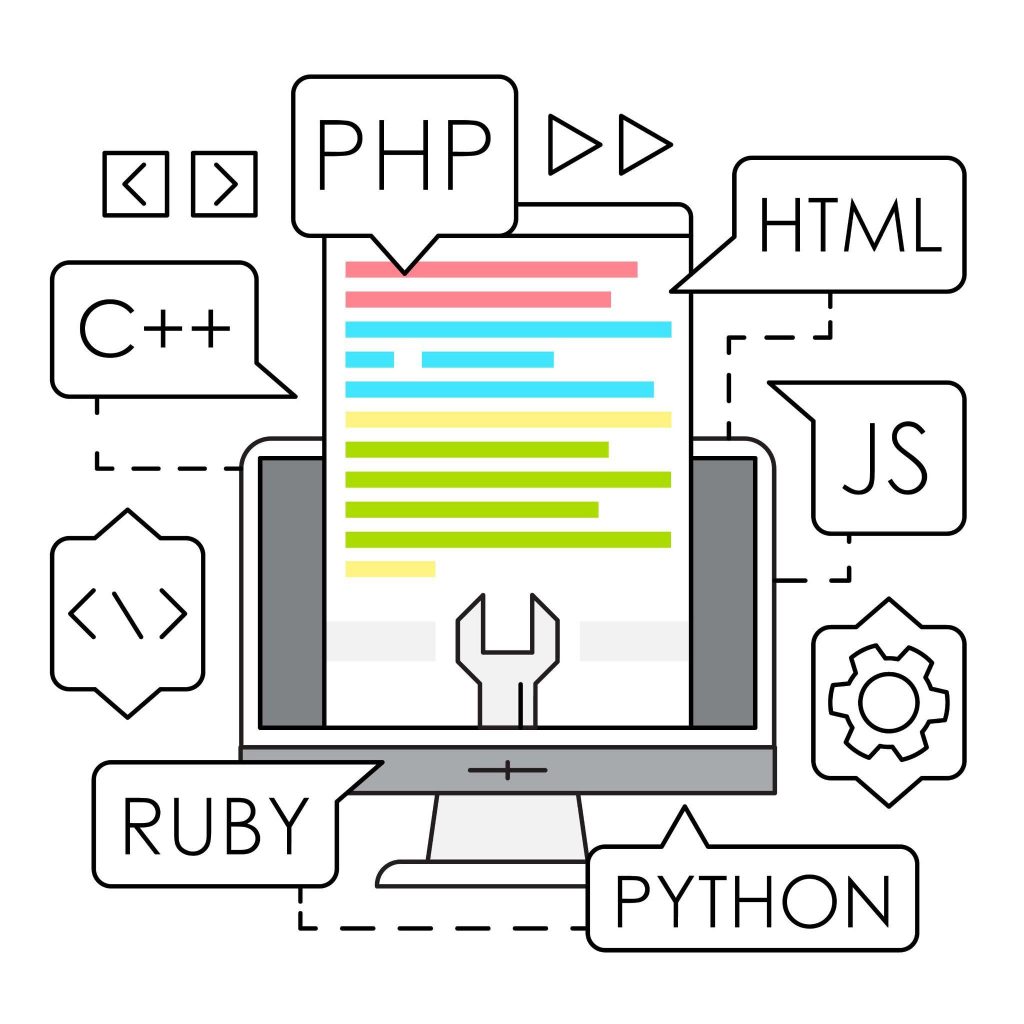Frameworks have become an important element of web development, as the ideals of web applications are consistently growing, and so does the complexity of the technology required. It’s totally unreasonable to reinvent the revolution for such sophisticated methods-assuming that you can reinvent all that. That’s why utilizing frameworks approved by thousands of developers around the globe is a very practical process for creating rich and interactive web applications. A web app has a backend (server-side) and a frontend (client-side), so we are concerned with both the best backend and frontend frameworks for your good.
What is a web development framework?
A web development framework is a collection of tools and resources for software developers to create and handle web applications, web services, and websites.
Such a framework has templating stuff for giving information within a browser, the programming setting for scripting the flow of data, and the application programming interfaces (APIs) for accessing underlying data resources. The framework also delivers the bases and system-level benefits for software designers and developers to build a content management system (CMS) for handling digital data on the Web. Developers can utilize the framework to determine the ‘out-of-the-box’ content management abilities, user authentication features, and organizational tools.

Top 7 Web Development Frameworks
Here are seven of the most robust frameworks in 2022 that you might be interested to understand.
1. Django
Django is a top-level Python web framework that encourages prompt development and pure, pragmatic design. Created by professional developers, it takes care of considerably of the annoyance of web development, so you can concentrate on writing your app without requiring to reinvent the wheel. It’s a free and available source. Any custom development agency using Django are aware of these benefits.
Big companies such as Google, Youtube, and Instagram use this framework. Django boasts its batteries-included quality, which is a ton of features such as authentication and messaging that Django includes. Django delivers strategies and tools for creators to build a safe and protected website or implements the safety features in the framework itself, like stopping code execution in the template layer.
2. Rails
Rails is a Model-View-Controller framework that utilizes as a popular framework that is valued by many developers. Airbnb, GitHub, Hulu, and Shopify are direct users of Rails. Rails are deemed a beginner-friendly framework, that helps newbies get started with web development quite fast. There are many helpful gems for rails, which are library-like dependencies that expand the functionalities of your application and allow you to grow even quicker and more efficiently. The Rails community is quite trustworthy and pleasant, and there are numerous tutorials, screencasts, and resources that can support you become a rails specialist in no time.
3. Express
Express is the tiniest and most adjustable Node.js web application framework that delivers a robust set of features for both web and mobile applications. Express gives a thin layer of real web application features, without covering Node.js features that you know and love., Express is quickly evolving as one of the most trending useful frameworks for web development nowadays. It is famous among Accenture, IBM, and Uber, including many other companies, and it’s also consistent with other frameworks such as Kraken, Sails, and Loopback.

4. Laravel
Laravel is one of the most usable web application frameworks with emotive, elegant syntax. We’ve already applied the foundation — releasing you to build without sweating the little things. Laravel matters beauty. We love pure code just as much as you like to do. Easy, elegant syntax sets excellent functionality at your fingertips. Every element has been thoughtfully believed to deliver a great developer experience. Laravel arrives with API help out of the box, and it also has a proper amount of packages that could expand its reach.
5. Angular
Angular is a front-end framework that expert in creating rich Single-Page applications. It’s a dynamic framework capable to make full and complete client-side applications, and there’s so much to do and discover in Angular. Angular 1. x utilized Javascript, but later releases assumed Typescript, which is a superset of Javascript. Angular’s main cons are its length corresponded to other frameworks, and the point it’s not SEO familiar by nature, though it can be SEO optimized. Google acquired angular, and Google, Microsoft, and Paypal operate it.
6. React
React is not a framework, it’s a frontend library which contain lots of things to use and build your website and other software, but many developers assume it a framework and it’s usually likened in that context. React was the first to assume the component-based architecture that Angular and Vue, and multiple other frameworks began to adopt later on. React’s virtual dom creates the dom-manipulation much quicker, and it’s quite simple to choose up, mostly thanks to its JSX syntax. React could be operated server-side or client-side. It was designed and maintained by Facebook, and Facebook and Instagram utilize it.

React completes it easy to create interactive UIs. Develop simple ideas for each form in your application, and React will efficiently modernize and update just the correct features when your data shifts. React can even render on the server utilizing Node and power mobile apps operating React Native. React lets you to interface with different libraries and frameworks.
7. ASP.NET
ASP.NET is a very famous web development framework that is extremely pleasing to create dynamic web applications for PC and mobiles. Microsoft designed it to let programmers make vibrant websites, applications, and other services. Asp.net Core is a novel version of Asp.net and is famous for its quickness, productivity, and energy or power. Some well-known players utilizing ASP.NET are TacoBell,StackOverflow, GettyImages to call a few.
ASP.NET is a creator and developer platform created up of tools, programming languages, and libraries for making many various sorts of applications. ASP.NET opens the .NET developer platform with tools and libraries especially for creating web apps. ASP.NET helps industry standard authentication protocols. Built-in features support save your apps against cross-site scripting (XSS) and cross-site request forgery (CSRF). ASP.NET delivers a built-in user database with help for multi-factor authentication and exterior authentication with Google, Twitter, and more.

Conclusion
A web framework serves as a critical part in the software development cycle. Each of the frameworks said overhead has its features and benefits.
Operating and using these famous web development frameworks is highly suggested as it can run up your development strategy. Along with these, you can even use some web development tools to help you in the method. But it is necessary to select the right framework for your task or you can get hamper with a robust framework like Ruby on Rails for developing a easy blogging site or a SPA.



